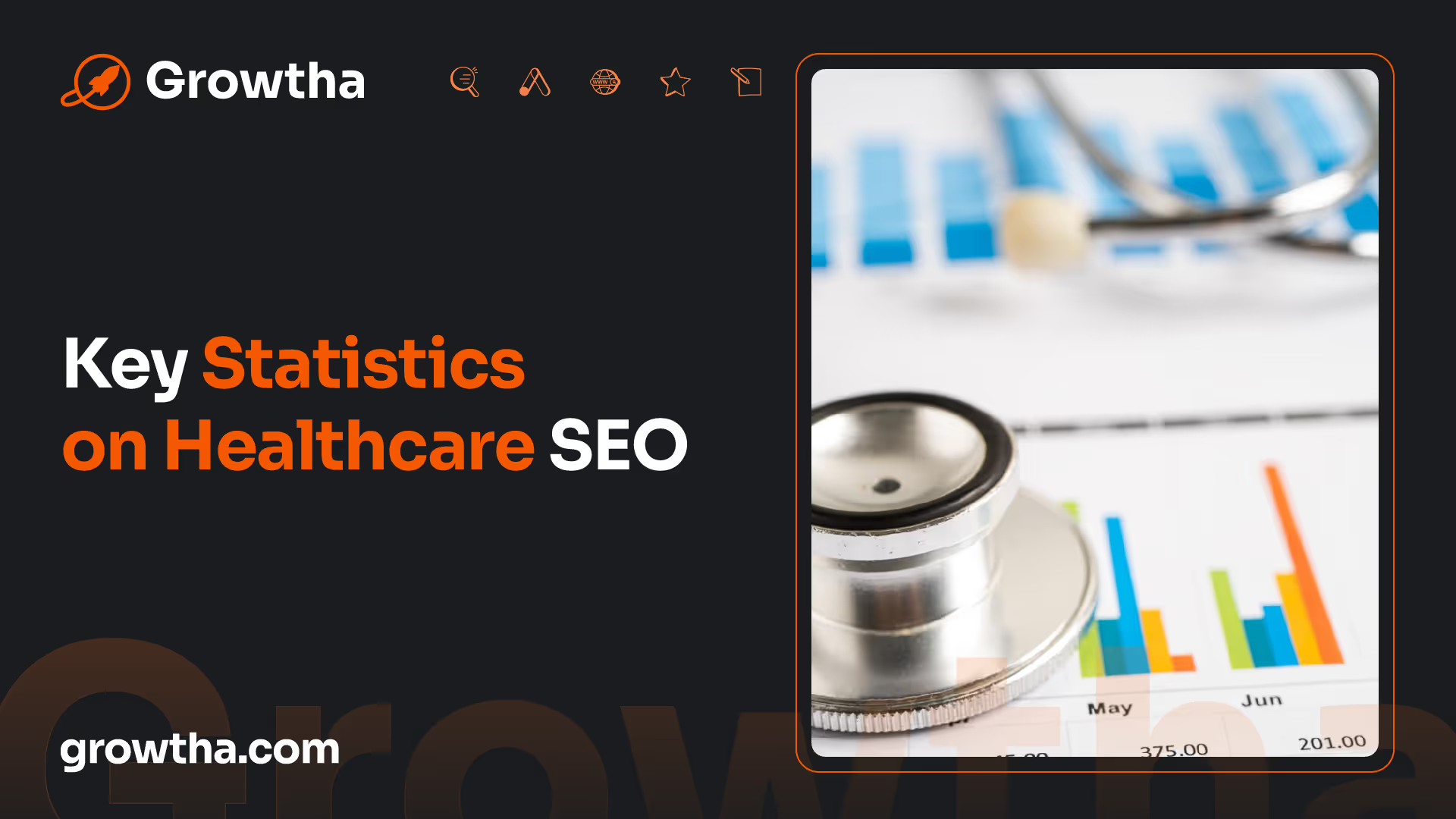SEOs Impact - Healthcare Statistics Revealed
This is where healthcare SEO (Search Engine Optimization) plays a crucial role. Healthcare SEO involves optimizing a healthcare facility's online presence to increase visibility.


SEOs Impact - Healthcare Statistics Revealed
Importance of Healthcare SEO
In today's digital age, healthcare providers need to ensure they have a strong online presence to reach and attract potential patients. This is where healthcare SEO (Search Engine Optimization) plays a crucial role. Healthcare SEO involves optimizing a healthcare facility's online presence to increase visibility and attract more attention from search engine users. By implementing effective healthcare SEO strategies, healthcare providers can reap numerous benefits and enhance their online presence.
Understanding Healthcare SEO
Healthcare SEO is the practice of optimizing a healthcare facility's website and online content to improve its visibility in search engine results. It involves various techniques such as keyword research, on-page optimization, link building, and mobile optimization. The ultimate goal of healthcare SEO is to attract consistent and relevant leads for healthcare practices.
Benefits of Healthcare SEO
Implementing effective healthcare SEO strategies can yield several benefits for healthcare providers. Some of the key benefits include:
- Increased Online Visibility: By optimizing their website and online content, healthcare providers can improve their rankings in search engine results. This increased visibility can lead to more organic traffic to their website, exposing their services to a larger audience.
- Consistent and Relevant Leads: Healthcare SEO can attract consistent and relevant leads for most healthcare practices. By targeting specific keywords and optimizing their online presence, healthcare providers can attract individuals actively searching for healthcare services in their area.
- Credibility and Trust: Positive online reviews and high search rankings achieved through healthcare SEO can enhance the credibility and trustworthiness of healthcare providers. When potential patients see positive reviews and rankings, they are more likely to view the provider as reliable and trustworthy.
- Improved Patient Engagement: Healthcare SEO can help healthcare providers connect with their target audience and engage potential patients. By providing valuable and informative content, healthcare providers can establish themselves as authorities in their field and build relationships with patients even before they step foot in the clinic.
In the highly competitive healthcare industry, healthcare SEO is essential for healthcare providers looking to attract more patients online. By understanding and implementing effective healthcare SEO strategies, providers can enhance their online visibility, attract relevant leads, and establish credibility and trust among potential patients.

Key Statistics on Healthcare SEO
To understand the impact of SEO in the healthcare industry, it's important to examine key statistics that shed light on the relationship between search engines, patient behavior, and healthcare sites.
Impact of Search on Healthcare Sites
With the growing reliance on the internet for information, search engines have become a trusted resource for individuals seeking health-related answers. In fact, approximately 5% of all Google searches are health-related, making it a significant avenue for people worldwide to find providers and obtain information on various health topics [2].
Search engines play a vital role in driving traffic to healthcare sites. Hospital sites, in particular, experience three times more visitors through search compared to non-search methods. This highlights the preference of patients to find healthcare providers online through search engines.
Patient Behavior and Search
When it comes to making healthcare decisions, patients engage in extensive research before taking action. Patients who ultimately book healthcare appointments tend to run three times more searches compared to those who don't take the next step. This emphasizes the importance of search in the healthcare consumer journey, as patients evaluate multiple providers to make informed choices.
Another significant aspect of patient behavior is the reliance on online reviews to evaluate healthcare providers. A staggering 94% of healthcare patients use online reviews as an initial step in assessing providers. Reviews serve as a convenient way for prospective patients to gain insights and gauge the reputation of a practice before making a decision.
Despite the prominence of online research, it's worth noting that 88% of healthcare appointments are still scheduled by phone. Prospective patients often prefer to call healthcare providers directly, as healthcare is a personal and private matter. Speaking to a real person provides reassurance and facilitates the necessary communication involved in booking appointments for oneself or family members [2].
These statistics underscore the critical role of SEO in healthcare marketing. By optimizing their online presence and utilizing effective SEO strategies, healthcare providers can ensure visibility in search results, attract potential patients, and positively impact patient behavior and decision-making processes.

Strategies for Effective Healthcare SEO
To maximize the online presence and visibility of healthcare providers, implementing effective SEO strategies is crucial. In this section, we will explore three key strategies for successful healthcare SEO: implementing on-page SEO, leveraging backlinks, and mobile optimization.
Implementing On-Page SEO
On-page SEO focuses on optimizing the content and structure of a healthcare website to make it easily found and understood by search engines. By implementing on-page SEO techniques, healthcare providers can increase visibility, drive more traffic to their websites, and ultimately attract more patients.
Some important factors to consider when implementing on-page SEO for healthcare websites include:
- Keyword Research and Implementation: Identifying target keywords and incorporating them strategically into the website's content is essential for healthcare SEO. By creating helpful content based on relevant keywords, healthcare providers can provide valuable information to their target audience while improving their search engine rankings [1].
- Meta Tags and Descriptions: Including relevant keywords in meta tags and descriptions helps search engines understand the content of the web pages. This can improve the website's visibility in search engine result pages (SERPs) and attract more clicks from users.
- Optimized URLs and Heading Tags: Using descriptive and keyword-rich URLs and heading tags (such as H1, H2, etc.) helps search engines understand the structure and hierarchy of the content on the website. This improves the website's overall SEO and user experience.
Leveraging Backlinks
Backlinks, or inbound links from other websites, play a crucial role in healthcare SEO. They can improve search engine rankings, increase visibility, establish credibility, and drive referral traffic to healthcare websites. Search engines view backlinks as endorsements of expertise and reliability, which can result in higher search rankings.
To leverage backlinks effectively, healthcare providers can:
- Develop High-Quality Content: Creating valuable and informative content can attract attention from other websites and encourage them to link to the healthcare provider's content. Sharing this content on social media platforms and engaging with relevant communities can help in acquiring backlinks and increasing online visibility.
- Collaborate with Influencers: Collaborating with social media influencers or industry experts can help healthcare providers gain exposure, increase credibility, and generate backlinks to their websites.
- Engage in Guest Blogging: Writing guest posts for reputable healthcare-related websites can provide an opportunity to showcase expertise and generate backlinks. Guest blogging allows healthcare providers to reach a broader audience and enhance their online presence.
Mobile Optimization
Optimizing websites for mobile devices is crucial in the digital age, as an increasing number of users access the internet through their smartphones and tablets. Mobile optimization involves creating a responsive website design that offers a seamless user experience across devices.
Mobile optimization is key for healthcare SEO, as it improves search rankings and user satisfaction. Google research shows that over 50% of healthcare administrators use their smartphones while making purchase decisions, highlighting the importance of having an aggressive mobile strategy to capitalize on this trend.
By implementing strategies such as responsive web design, fast loading times, and intuitive navigation, healthcare providers can ensure that their websites are accessible and user-friendly on various mobile devices. This enhances the overall user experience, improves search engine rankings, and attracts more patients.
Incorporating these strategies into healthcare SEO efforts can help healthcare providers increase their online visibility, attract more patients, and establish a strong digital presence in the competitive healthcare industry. It is important to continually analyze and adapt these strategies to stay ahead of the evolving SEO landscape.
Trends in Healthcare SEO
As the digital landscape continues to evolve, healthcare SEO strategies must adapt to stay relevant and effective. Two significant trends in healthcare SEO are local SEO strategies and content quality and length.
Local SEO Strategies
The significance of local SEO in the healthcare sector has increased, as more patients turn to the internet to find local healthcare providers. Implementing effective local SEO strategies can make healthcare services more visible and accessible to patients in their community.
One essential component of local SEO for healthcare is engaging with patient reviews. Positive reviews contribute to the credibility of healthcare providers and attract new patients. Healthcare organizations should encourage and respond to patient reviews to improve search rankings and enhance patient care.
Optimizing Google My Business (GMB) listings is another effective strategy for enhancing the online visibility of healthcare providers. Regular updates and optimizations of GMB listings, done by a healthcare SEO company, can lead to better visibility and higher patient volume.
Including location-specific keywords in website content also plays a crucial role in local SEO for healthcare. Strategic placement of these keywords across various pages can attract more local patients seeking healthcare services in the vicinity [6].
Content Quality and Length
In healthcare SEO, high-quality content is paramount to achieving better search rankings and attracting organic traffic. Providing accurate and current medical information is essential for building trust, authority, and improving search rankings.
Studies have shown that content ranging from 2,000 to 2,500 words tends to achieve higher rankings in search engine results. Longer-form content allows for more comprehensive coverage of a topic, providing in-depth information that users find valuable. It also signals to search engines that the content is authoritative and relevant to the user's query.
When creating healthcare content, it's important to prioritize quality over quantity. Content should be well-researched, accurate, and address the needs and concerns of the target audience. Including relevant keywords naturally within the content can help search engines understand the topic and improve visibility in search results.
By embracing local SEO strategies and prioritizing content quality and length, healthcare organizations can effectively optimize their online presence and connect with patients in a meaningful way. Staying up to date with these trends and implementing best practices will contribute to the success of healthcare SEO efforts.
Best Practices for Healthcare Keywords
When it comes to healthcare SEO, implementing best practices for keywords is crucial to improve visibility and reach the right audience. In this section, we will explore two important aspects of healthcare keyword optimization: the importance of long-tail keywords and effective keyword research and implementation.
Importance of Long-Tail Keywords
In healthcare SEO, utilizing long-tail keywords plays a significant role in connecting with prospective patients and ranking higher on search engine result pages [7]. Long-tail keywords are more specific and targeted phrases that reflect the unique needs and queries of potential patients.
By incorporating long-tail keywords into your digital content, you can establish a more direct connection with individuals searching for specific healthcare information or services. Long-tail keywords allow you to target niche topics and address specific concerns, increasing the chances of attracting relevant traffic to your website.
For example, instead of targeting a broad keyword like "heart disease," a long-tail keyword could be "early signs of heart disease in women." This specific keyword not only captures the intent of the searcher but also helps your content rank higher among competitors.
Keyword Research and Implementation
To effectively target keywords in healthcare content, conducting thorough keyword research is essential. Analyzing competitors' websites and making a list of potential keywords related to the content of each page can help you identify valuable keywords to focus on [7]. Tools like Google's Adwords Keyword Planner can assist in this research process.
When implementing keywords, it's important to strike a balance. Experts suggest using a limited number of keywords per content page to avoid "keyword stuffing," which can be penalized by search engines. Aim to include two to three broad keywords and two to four long-tail keywords in your content. Repeat broad keywords one to three times and use long-tail keywords one to two times. This approach ensures that your content remains focused and relevant without overwhelming readers with an excessive number of keywords.
It's also crucial to incorporate keywords naturally into your healthcare content. Pairing great keywords with compelling copy enhances your overall marketing strategy and helps attract high-quality leads [7]. Remember that high-volume keywords don't always translate to high-quality keywords in healthcare SEO strategies. An underlying keyword strategy that aligns with your target audience's needs is essential for successful search tactics.
By implementing these best practices for healthcare keywords, you can optimize your content to better meet the needs of your audience and improve your search engine visibility. Remember to conduct thorough keyword research, utilize long-tail keywords, and incorporate keywords naturally into your content to enhance your digital marketing efforts and drive high-quality traffic to your healthcare website.
References
[1]: https://www.semrush.com/blog/healthcare-seo/
[2]: https://www.invoca.com/blog/healthcare-marketing-statistics
[3]: https://loganix.com/seo-for-healthcare/
[4]: https://www.digitalauthority.me/resources/leveraging-backlinks-medical-seo-matters/
[5]: https://www.wordstream.com/popular-keywords/health-care-keywords
[6]: https://www.linkedin.com/pulse/top-8-2024-healthcare-seo-trends-gerrid-smith-6f3qf
[7]: https://webmdignite.com/blog/seo-strategy-healthcare-marketing







